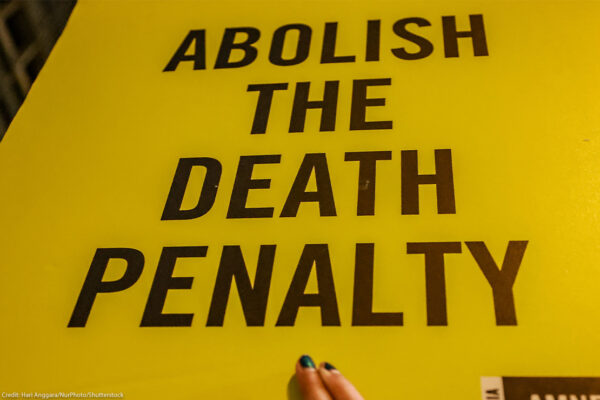ACLU Sets Record Straight on Chronology of GEO’s Mississippi For-Profit Youth Prison
ACLU Commends FAU Decision to Publicly Discuss Naming Rights
February 27, 2013
FOR IMMEDIATE RELEASE
CONTACT: (212) 549-2666; media@aclu.org
WASHINGTON – While commending the Florida Atlantic University President Mary Jo Saunders for her decision to publicly discuss the school’s decision to sell the naming rights to its stadium to GEO Group, the American Civil Liberties Union in a letter to President Saunders clarified the chronology of the case of GEO’s Mississippi for-profit youth prison. The ACLU called on FAU to rethink its decision to sell the naming rights to its football stadium to the for-profit prison company.
The ACLU has called on FAU to rethink its decision to sell the naming rights to its football stadium to the for-profit prison company.
Media reports state that in response to Monday’s protest, President Saunders will conduct a public meeting on campus this Friday to discuss the school’s recent decision to accept a $6 million donation to its athletic program from for-profit prison corporation GEO Group.
In response to Monday’s protest, GEO vice president for corporate relations, Pablo Paez, issued a statement characterizing the criticisms of GEO as "unfair." He singled out statements about GEO’s Walnut Grove Youth Correctional Facility as a particular example of this unfairness. He stated: "For instance, a number of media reports cite problems at a facility formerly operated by GEO in Mississippi, the Walnut Grove Correctional Facility, quoting a report by the Department of Justice issued in November 2010. What those media reports fail to disclose is that our company only assumed management of the facility in late August 2010, and the findings related to problems that preceded GEO’s involvement at the facility, when it was operated by different private operator."
Carl Takei, staff attorney at the ACLU National Prison Project said, "As to GEO’s statements about Walnut Grove, we’d like to set the record straight."
Takei continued, "GEO cannot escape responsibility for what happened at Walnut Grove on its watch. It is important for the public and President Saunders to understand the accurate chronology of the Walnut Grove case."
That chronology is as follows:
- In August 2010, GEO took over operation of the Walnut Grove Youth Correctional Facility.
- A few months later, in October 2010, the U.S. Department of Justice notified the State of Mississippi that it had opened an investigation into conditions at Walnut Grove.
- In November 2010, the ACLU and the Southern Poverty Law Center jointly filed suit against GEO and others responsible for the facility, alleging that conditions in the facility violated the Eighth Amendment’s prohibition against cruel and unusual punishment.
- Beginning with site visits Jan. 10-13, 2011, and throughout 2011, the DOJ continued its investigation of Walnut Grove. During the same time period, the ACLU continued to litigate its case in federal court.
- On March 20, 2012, the DOJ issued a report to the Governor of Mississippi describing the "systematic, egregious, and dangerous practices exacerbated by a lack of accountability and controls" at Walnut Grove and stating that the sexual misconduct they found there was "among the worst that we have seen in any facility anywhere in the nation." See more: Investigation of the Walnut Grove Youth Correctional Facility, Walnut Grove, Mississippi
- On March 26, 2012, Judge Carlton W. Reeves, the Mississippi federal judge overseeing the litigation, presided over a hearing in which he heard evidence of the ongoing abuse and neglect at Walnut Grove.
- On March 26, 2012, Judge Reeves entered a consent decree in the ACLU’s Walnut Grove litigation, stating that the prison was “a picture of such horror as should be unrealized anywhere in the civilized world.” See more: C.B. et al. v. Walnut Grove Correctional Authority, et al., No. 3:10-cv-00663-CWR-FKB
- On April 20, 2012, Mississippi Commissioner of Corrections Christopher Epps announced that Mississippi was ending all of its contracts with GEO.
Significantly, the DOJ investigation did not conclude in November 2010. Nor did the unconstitutional conditions which precipitated both the ACLU lawsuit and the DOJ investigation. As Judge Reeves stated in his order dated March 26, 2012:
Nothing has curtailed actions of the staff and indifference of management officials to the constant violations, even though the parties and their experts have been monitoring, investigating and conducting on-site visits constantly since before the lawsuit was filed and during the pendency of this action. Moreover, the fact that the DOJ dared to begin its investigation in October 2010 has not caused the defendants to transform the facility into one that complies with the United States Constitution. But even more astounding is the fact that the notice of the fairness hearing itself did not cause the defendants to change course. The testimony established that only two days before the hearing, the facility remained so understaffed that a teenage offender was brutally attacked by several other offenders while only one staffer was on site. As of the date of the [March 22, 2012] hearing, according to testimony, management has done nothing to address staffing issues. WGYCF [Walnut Grove Youth Correctional Facility] has allowed a cesspool of unconstitutional and inhuman acts and conditions to germinate, the sum of which places the offenders at substantial ongoing risk.
The ACLU has criticized the operations of prisons for profit, arguing that they unjustifiably reap lucrative rewards from mass incarceration. In some cases, states agree to guarantee minimum occupancy levels that benefit the private prisons but make it harder to change criminal justice policies. Prison profiteering enables and depends upon America’s overincarceration epidemic. The United States is the world’s largest jailer, with 5 percent of the global population but 25 percent of its prisoners.
Read a blog by Carl Takei of the ACLU National Prison Project & Julie Ebenstein of ACLU of Florida titled: Sponsoring a Florida College Football Team Can’t Whitewash a Private Prison Company’s Atrocious Record
Related Documents


